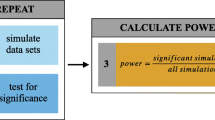Abstract
Pharmacogenetics and pharmacogenomics are related facets of cutting edge therapeutic research in a field that relates pharmacological properties to the genetic characteristics of human beings. An optimistic interpretation suggests that “One-Size-Fits-All” therapeutics, whose effects can only be predicted in probabilistic terms, will give way eventually to individual tailor-made therapies with entirely predictable properties in each patient. Yet the concept of anticipating individual pharmacotherapeutic response appears to disregard some of the fundamental limitations of causal understanding in the biological world of structure–action relationships. It is not simply a problem of confronting complexity – which might be overcome in time with advances in biotechnology and computing power – but the inescapable paradox of the genetic characteristics of individuals within the human species. The aleatory process of evolution ensures that with the exception of monozygotic twins, every human being is genetically unique. At the same time there appears to be more in common than divides. Pharmacogenomics provides a climate in which to explore and better understand the variable causal relationships between genetic element, protein and therapeutic or toxic actions, but can only do so in abstraction. Thus␣predictive power may be enhanced but is ultimately constrained by insuperable probabilistic considerations.
Similar content being viewed by others
References
Badcott, D.H.: 1999, The Nature of Therapeutics. Unpublished Doctoral Thesis, University of Wales
Bhaskar R. (1978) A Realist Theory of Science. Harvester Press, Sussex
Blackburn S. (1994) The Oxford Dictionary of Philosophy. OUP, Oxford, UK
Boyd, R.: 1990, ‘Realism, Approximate Truth and Method’, reprinted as chapter x in: D. Papineau (ed.): 1996, The Philosophy of Science. Oxford University Press, Oxford
Boyd R.N. (1991) Realism, Anti-Foundationism and the Enthusiasm for Natural Kinds. Philosophical Studies 61:127–148
Crick F. (1982) Life Itself: its Origin and Nature. Futura, London
Elsasser, W.M.: 1981, `A Form of Logic Suitable for Biology’, Progress in Theoretical Biology 6, 23-2
Garrod, A.E.: 1930, ‘The Inborn Factors in Disease’, republished in Scriver and Childs: 1989, Garrod’s Factors in Disease. Oxford University Press, Oxford
Greener, M.: 2004, SNPs: ‘Driving Variability and Tailoring Treatments’, Drug Discovery and Development (July)
Grmek M. (1989) Diseases in the Ancient Greek World. Johns Hopkins University Press, Baltimore
Harrison, G.A. and H. Morphy (eds.): 1998, Human adaptation. Berg: Oxford and New York
Hume, D.: 1740, A Treatise of Human Nature Book 1, Part 111 (§V1).
Hume, D.: 1748, An Enquiry Concerning Human Understanding. Edited by Eric Steinberg (1977), Hackett, Indianapolis, p. 23
Keynes, J.M.: 1921 (1952 reprint), A Treatise on Probability. London: Macmillan
Kornblith, H.: 1995, Inductive Inference and Its Natural Ground (Chapter 3). MIT Press, Cambridge Ma
Mill, J.S.: 1843, A System of Logic Book. Longmans, Green and Co., London (1916)
Monod J. (1971) Chance and Necessity. Knopf, New York pp.98–114
Murphy M.P. (2002) Pharmacogenomics: a critical component of patient stratification during drug development. Expert Review of Molecular Diagnostics 2(1):1–4
Popper K. (1992) Objective Knowledge. Clarendon Press, Oxford, pp.208–210
Robertson E.A., Young D.S. (1980) Biochemical Individuality and the Recognition of Personal Profiles with a Computer. Clinical Chemistry 26:30–36
Rosenberg A. (1985) The Structure of Biological Science. Cambridge University Press, Cambridge, p. 221
Roses A.D. (2001) Pharmacogenetics. Human Molecular Genetics 10(20):2261–2267
Russo, F. et al.: 2005, `Statistical Modelling and Causality’. Paper presented at XXV Population Conference, Tours, France
Thomasma D. C. (1988) Applying General Knowledge to Individuals: A Philosophical Analysis. Theoretical Medicine 9:187–200
Tooby, J. and L. Cosmides: 1990, `On the Universality and the Uniqueness of the Individual: The Role of Genetics and Adaptation’, Journal of Personality 58(1), 17-7
Sadee, W.: 2002, `Pharmacogenomics: The Implementation Phase’. AAPS PharmSci 4(2) article 5 (http://www.aapspharmsci.org)
Stein, B.: (2005), Washington Post June 17
Wilkinson G. R. (2005) Drug Metabolism and Variability among Patients in Drug Response. The New England Journal of Medicine 352:2211–2221
Williams, R.J.: 1956, Biochemical Individuality: The Key to Understanding What Shapes Your Health. Wiley, New York. Quotation from introduction to 1988 edition by Jeffrey Bland
Vácha J. (1985) German Constitutional Doctrine in the 1920s and 1930s and Pitfalls of the Contemporary Conception of Normality in Biology and Medicine. J Med. Phil. 10:339–367
Author information
Authors and Affiliations
Corresponding author
Rights and permissions
About this article
Cite this article
Badcott, D. Some causal limitations of pharmacogenetic concepts. Med Health Care Philos 9, 307–316 (2006). https://doi.org/10.1007/s11019-006-9008-4
Published:
Issue Date:
DOI: https://doi.org/10.1007/s11019-006-9008-4




